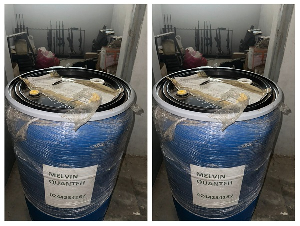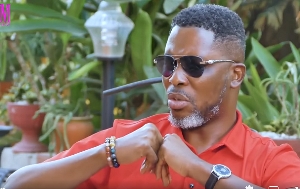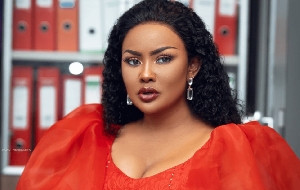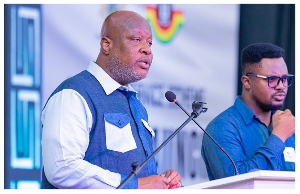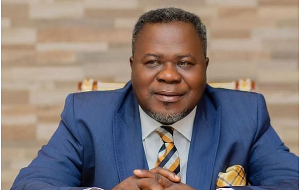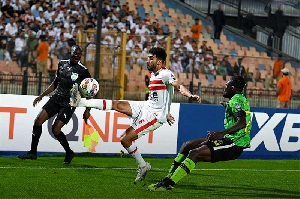It is time to audit our progress as a nation over the last 50 years. This national self-examination should include our own self-evaluation and the opinions of those who have nothing to gain or lose for expressing their honest views of us. In this regard, Ghana has made tremendous strides because even visitors from the West find the level of freedom of expression among journalists and the absence of political prisoners refreshing. I have started with freedom of expression because this is the bedrock of a true and sustainable democracy.
Ghana is proverbially the most hospitable country in the world. The true meaning of this is not quite clear but it suggests that the country is a safe and enjoyable destination. Why is this so? Is this just a fluke of nature or is this a national attitude that is instilled in youngsters from their earliest years? We have not turned our hospitality into gold yet because to date, we have not taken full advantage of modern communications technology to market our country aggressively and creatively to the world. This must transcend our narrow policy of focusing on a finite market, known as the African Diaspora. Our hospitality industry is slow on service and high on obsequiousness to foreigners. They are always in a hurry to serve a foreigner before they attend to a long waiting citizen of the republic. If we do not have self-respect, no visitor will treat us with respect and we will be re-colonized before we know it.
Along with our much lauded hospitality is a disturbing “culture of begging” which pervades every aspect of life in Ghana from our ports of entry to our tourist sites where armies of children and adults shock visitors with ferocious begging regularly. It is time to evaluate every aspect of national life from individual behaviour to our national institutions and systems, so that the next 50 years of nationhood benefit fully from the talents, skills and creativity of all Ghanaians, wherever they may be. A bigger tent produces more ideas.
Ghana@50, as the slogan goes, is an opportunity for honest reflection on our achievements and failures as a nation. It is time to give ourselves a grade and have unbiased external examiners evaluate us, so that Ghana @ 51-100 will be the beneficiary of this thorough evaluation. Just as individuals at 50 take real stock of their lives, so must the nation.
At independence, our national ethos was easy to discern. We were first out of the starting blocks and had a strong and visionary leadership which believed in the highest standards possible for the Ghanaian. Those born or were young during this era of autonomy (1948-1965) continue to exude the confidence which they internalized from the state as children. We were the leaders of a great continent and Ghanaians walked tall everywhere with pride and a sense of achievement. Ghanaians believed they could compete with the world’s best at anything and succeed in every sphere of human endeavour. The first republic died in a wasteland of one-party paranoia, the death of the free press and a failure to adapt from the “struggle mode” to effective management of the state.
Without getting distracted by the politics of our history, we would have to call the period from 1966 to 1979 the search for a new national ethos. This was an extremely confusing period. We tried recipes ranging from military rule through a hurriedly restored multi-party democracy and even a potpourri of both. Even during this period of confused soul searching, Ghana’s experience with military administrations was notably benign compared to many other countries of the South. Nonetheless, there were many human rights abuses. During this period though, we began to lose our global prominence and became just one of the confused fifty-four states of Africa. During the first republic, if you said you were Ghanaian anywhere in the world, it was understood where you came from and that you represented a certain stoic and steady African confidence. During this period of muddling through our national development, if you said you were from Ghana, your identifying statement was more likely to be met with “Where is that?” Our global prominence had dissipated.
With the global sheen dimmed, what was happening to the national psyche? We had lost faith in our ability to sustain ourselves as a country and we began to believe that the answer to our national angst lay outside our borders. We began to lose our confidence as a people. The emigration dialectic took control because the value of a good education and an honest day’s work, which was central to our national ethos, had been grossly undermined by various short cuts to success which challenged the very moral foundations of our nation. All you needed to get ahead was a “chit” not a university diploma or a well acquired skill. This period of “the great fog” ended in the executions of the “Roly-Poly” generals. The younger uniformed men arrived with big guns and a somewhat well placed but naïve determination to disinfect the society of its endemic malaise of corruption.
We tried to recapture the glow of the first republic through another democratic experiment. These elections were judged to be the most free and fair in the post-independence era. By electing Hilla Limann as president, Ghanaians chose their original ethos of hard work, education and national rather than tribal identities. This election made a strong yet unspoken statement that as a nation we were committed to electing someone who embodied the core elements of our national character. A Ghanaian was just that, a Ghanaian. The subtext of the Limann victory was that we experienced ourselves as a nation and that ideally we were on our way to building a meritocracy after years of pandering to mediocre leadership. The idea of a president as a manager of the nation rather than a feudal chief of chiefs was beginning to make its mark on the national psyche, but not for long. We were violently roused from that dream and were thrust into a “revolutionary” era in which a sad militarization of civil life took hold for longer than anyone imagined possible. The impact on the social and moral fabric of the society was largely negative and seemingly immeasurable.
So our search for a national ethos took hold anew from 1979 through 1996. This was a period of horrible soul searching and pain. This period is best remembered for human rights concerns and the end of a free press which tainted the best laid plans of the administration for two decades. This grossly undermined any connection with glow of the first republic which was implied in the colors of this P/NDC administration. The social contradictions of the society and the mental struggle on the place of the military in civil life eventually came to reside ambivalently within the person of J.J. Rawlings. The central place of an honest living, based on a good education continued to be eroded as the leaders showed no faith in their own policies by spiriting their children overseas to complete their basic educational requirements. Paradoxically, our return to the re-birth of multi-party democracy emerged from this authoritarian administration. This P/NDC administration was grudgingly led by the people to another attempt at multi-party democracy. We have now begun to lead Africa in a new era of the value of good governance, the rights of citizenship and the power of the vote.
The “3 headed monster” of illiteracy, poverty and disease has however not been contained. While the nation has continued to wrestle with defining the “political kingdom” for 50 years, the “3 headed monster” has continued to thrive. We seem to have lost the desire to be the best and are willing to evaluate our achievements in isolation and accept mediocrity in so many aspects of Ghanaian life. We are inviting the world to visit a nation which in 50 years has been unable to reduce its infant mortality, unable to place the tools of increased productivity in the hands of the ordinary citizen and one in which too many women still die during childbirth in 2006. We continue to construct open drains in a malaria endemic nation, rely on prayer rather than our God given talents and have not engendered public confidence in the public service. Our decision making processes remain cumbersome and inefficient. The present government may be announcing that Ghana is open for business but this cannot be. The persistence of poor service, reliance on “tradition”, the paucity of clean facilities, the absence of a quality—based mind set and the clear absence of an efficiency based management culture; and with this, a clear lack of accountability for official actions make being open for legitimate business a mirage.
Sadly, for most, a career in politics or in the public service is still seen as the shortest cut to the national trough and corruption is still a cancer in our lives. Given the number of policemen and customs officers who extort bribes from the public 24 hours a day, it surprises no one that a brisk drug trade is finding a home in Ghana. Many lose their lives daily on our roads because the laws on the books regarding road safety are never enforced. Law enforcement officials are only interested in collecting their own private fines which are never credited to the state.
The challenge of leadership for the next 50 years lies in the courage to dispassionately apply our laws swiftly by judicial and enforcement institutions that are beyond reproach. It seems that almost every rule or law is negotiable in our nation. We continue to underestimate how corruption undermines our democracy and the rights of the ordinary citizen. No one questions the source of wealth of overnight billionaires, yet we have an agency responsible for collecting tax revenues. Our national discourse easily becomes derailed by the irrelevancies of personality rather than substance. This is unfortunately a dimension of our national ethos which holds us back. The Ghanaian is insulted if you disagree with him. This hypersensitivity to differing views and intolerance to dissent is a dimension of our national ethos which has greatly undermined our journey as a nation. For all our macroeconomic gains over the last decade, if behavioral and attitudinal changes which promote a real sharing of ideas do not occur, a competitive modern nation will not emerge any time soon. Many lives have been lost and there are many unsung heroes along this storied path to our 50th year as an indivisible nation –state. These contributions must be cherished and honored by keeping the faith with the ideals of the struggle for the recovery of independence of the peoples of Ghana.
As long as Ghanaians can continue to have open discourse without fear of recrimination, we may well be on the path to the promised land of a merit –based society. This is a goal worth striving for in the next 50 years of self-government but we have failed to unequivocally invest in our greatest asset, the people of Ghana. We must de-politicize our approach to the “3 –headed monster” of illiteracy, poverty and disease and have a long range national unity plan to annihilate this monster based on a solid investment in our youth from their first year of life. We must become a skill and knowledge based society steeped in the civic literacy of our own history and circumstances, so that Ghana@100 years we will indeed be the pride of Africa, if not the world. At this point our future is much more important than our past. To be true to our national creed of “Freedom & Justice” we must recognize that we may have found a growing but fragile freedom but justice is unable to scale the rapidly rising wall of corruption into the welcoming hands of the ordinary Ghanaian.


